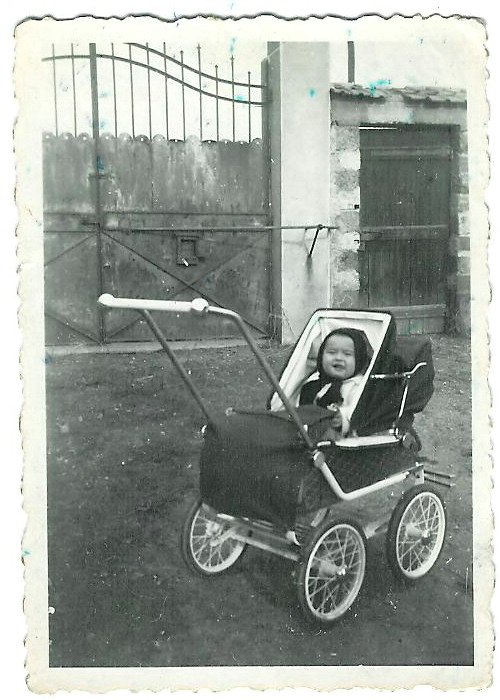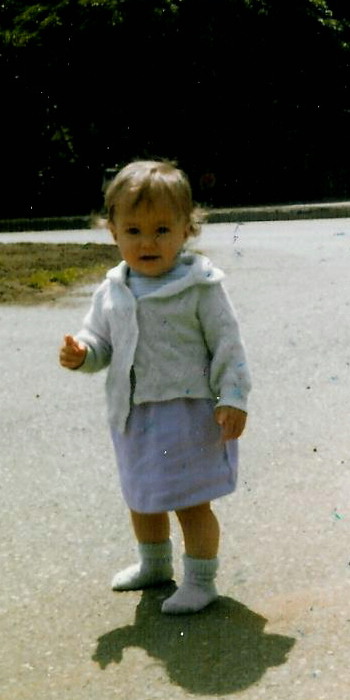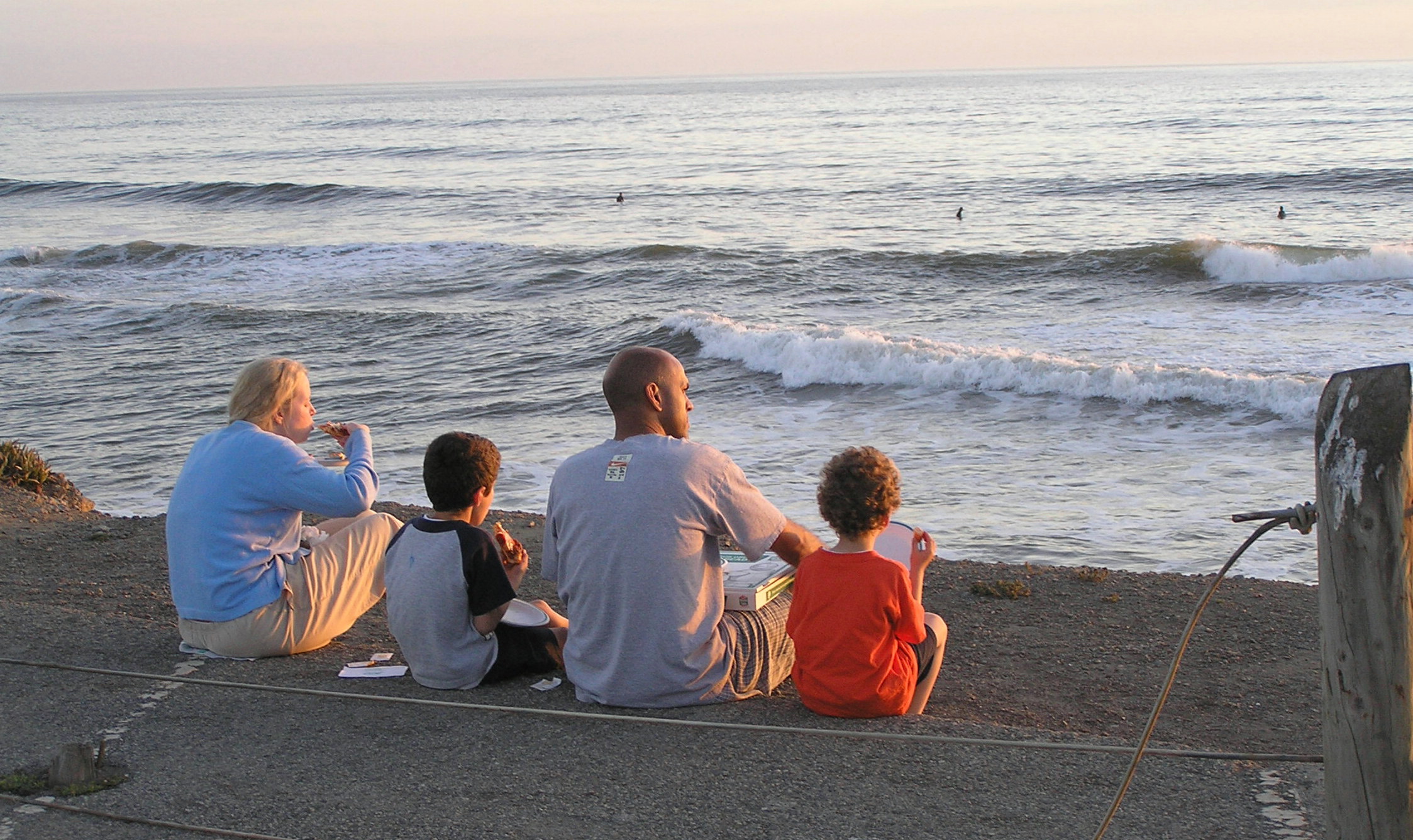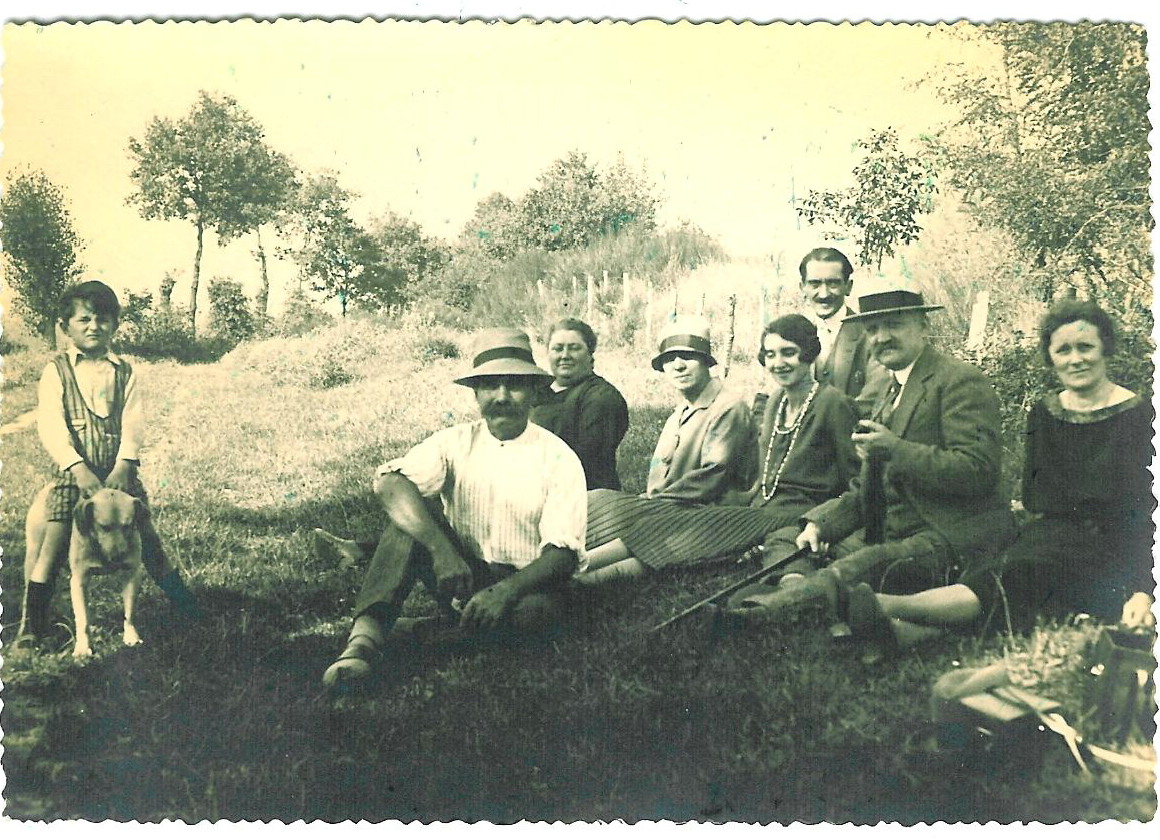

|
Le blog de la Bergerie
|
I wrote this long article more than 10 years ago, taking great care in phrasing it the best possible way, carefully attempting to be clear and concise (rather than just plain enthusiast!) and quoting all my sources at the end, because I did not invent anything new, all has already been said. I refined it a couple of time already but the main gist of it was there from the beginning. And I received some compliments, which have always made me feel awkward. The truth is that all this very good advice that I mention in the article, I did not follow it myself, I ignored it in my youth, and all thru my years of being a mother, and even up to mid-life, where I experienced through the grace of God this most amazing and stunning return to the faith! A full metanoia, a complete re-adjustment of my life, putting my heart and mind and my soul in sync. And what a wonderful grace it is. What a great adventure it turned out to be and it is still unfolding itself in front of me and in myself every day. And I started writing about it.
But I certainly don’t want to be a hypocrite. So I wanted to mention it again upfront. Among all the things I have learned along the way, a most useful one and a very practical one is that every day is a new beginning and every person we meet a new opportunity. Twenty years into this “return to the faith” I understand so much better how to look at the possibility for goodness in others and encourage them. And I am the first to be aware when I can’t do it, when I come up short. But sharing is such a good thing for all of us to do, listening and talking, communicating and interacting is such an essential part of being alive, so I am posting this again as I have been revising my site. Whether it is in my writings about the faith or in my photos of nature, I hope they will be an inspiration, an encouragement for you, for your family, for today.
God has giving me numerous graces along the way and two essential ones are my two lovely granddaughters, with whom I do share the faith. Their father said right from the beginning that I could take them to church, and I did and I do! He had said that if they can learn to be quiet for one hour, it was already a good enough lesson as far as he was concerned, and I remember laughing at this. But at the same time, I realized along the way that I have since that day said millions of prayers of thanks to God for those girls, for their caring parents, for all of our family who came before us. And I know now, 10 years later, that God was very smart with me too, because who knows, on my own, how easily I could have forgotten to pray for them, but He put a reminder in front of my eyes, a lovely couple of reminders, to pay attention to them and to say THANK YOU!
Life is a journey and faith is both the goal and the path.
At whatever step you are on your own faith and family journey, I wish you well and I hope you can find some use in the article below.
A few months ago, I wrote a commentary "What I learned from GOD IS LOVE" and I ended it by suggesting topics for future encyclicals. Because I felt so grateful for the inspiration and encouragement that I got from DEUS CARITAS EST, I was bold enough to ask Pope Benedict XVI to write again soon and tell us "How can we support and strengthen the "domestic church" against the rising tides of social sin?" After my commentary was posted on-line, a mother from Sri Lanka sent me an email saying how much my question on the domestic church resonated strongly with her. I love sharing my faith and I find it exciting to be able to do it from Northern California to Sri Lanka! But besides this global dimension offered by the internet, this comment from another mother in Asia got me thinking about this question myself and see how I could articulate a brief answer.
There are many mixed reasons why the topic of the domestic
Church is very dear to my heart and some have to do with a sense of having missed
the boat myself... because I came back to the faith so late in life, after my
own child was all grown up and away from home and after I had gone through a
divorce myself. "O so late have I loved Thee!"… I was given a
very strong sense of the importance of the family through my own parents and
grand-parents, and for that I am very grateful. And although I did my very best
to transmit these family values once I started my own, I was completely cut
off from a life of faith and from a community of believers. And it is exactly
in that dimension of faith that resides the uniqueness of the domestic Church.
|
The domestic church is the family; it is the faith-life of the family. |
It is this invisible structure made of the love between each family member and between them and God. It is resting on the visible members of the family but it is being nourished by the invisible (but Oh so vital) energy of grace. Each family is a nucleus of people glued together through the ties of blood running in their genealogy on one level and the bonds of love and affection running through their hearts on another level. The ideal is to keep both levels in sync! And that's where grace comes in, it brings supernatural nourishment to each, it softens what would normally harden, it unites what would simply come apart, it comforts what would easily give up. How each family will deal with love and relationships and grace (or the lack of) will set up the stage for its spiritual health and fitness.



And this faith is not only the link to God, to his Son, to the Saints, to everything transcendent, but it gives us the "big picture" about this journey of us on earth and it gives us the roadmap on how to navigate the journey. It is from faith that all the virtues can flow, such as the cornerstones virtues of hope and trust and charity. It is exactly from the nest of the family that one can learn how to exercise charity toward the other members of the human family, starting with their own first, then reaching out to the world at large. All the other virtues needed for everyday life, such as courage, patience, restrain, kindness and generosity are also best learned when practiced within the circle of the family first. The family is the very first school of love.
Most parents know this instinctively but they do not always know how to articulate it. They know that what they are doing within this family school of love is more important than any course at Harvard or Yale but because that is not what is being said in the surrounding popular culture, they often feel they have to swim against the current (just like salmon!) and it is a constant struggle. There are numerous messages being repeatedly offered as attractive models and these messages are in direct conflict with the Christian faith: messages about instant gratification rather than developing patience and fortitude, messages about feeding our own needs rather than exercising the love of neighbor, about glorifying individualism rather than working for the common good, about the superficial importance of appearances rather than true character, about use and abuse rather than self restrain, greed rather than charity, etc..
|
"Lumen Gentium" |
As John Paul II said in Lumen Gentium, the basic cell of society, the domestic church provides the "first natural abode for the human and Christian development of the new generations, inculcating in them the Christian values of honesty and fidelity, diligence and confidence in divine Providence, hospitality and solidarity; today, therefore, it needs special support in order to resist the threat of disintegration coming from the culture of individualism".
So when I wondered how the domestic church can be strengthened in our modern world, how can it grow positively from within and resist the negative influences from without, a link started taking shape in my mind between the life of the domestic church on one side and between the demands of evangelization on the other. I started seeing how closely interconnected they are.
|
"Evangelii Nuntiandi" |
The very best program on evangelization that I know has been outlined in a wonderful encyclical called "Evangelii Nuntiandi" (Evangelization in the modern world). In it, Pope Paul VI spells out step by step what needs to be done and how to do it. And he reminds us right upfront that evangelization is a process which started 2000 years ago when Jesus Christ said "Go, therefore, and make disciples of all nations, baptizing them in the name of the Father and of the Son and of the Holy Spirit, teaching them all that I have commanded you" Mat 28:16-20. The command to the twelve to go out and proclaim the Good News is valid for all Christians. Singing the praise of God, the people must communicate it and spread it … and through its influence transforming humanity from within and making it new". As I studied this encyclical, I found myself in complete agreement, mentally, with the program outlined in "the need to spread the good news" although I wondered often how to do it, practically. But little by little, a picture started to emerge on how it should be done and this process of evangelization can be used in the very same fashion as a daily guide for the domestic church. It is all related!
 A family watching the sunset at Ocean Beach in San Francisco, California
A family watching the sunset at Ocean Beach in San Francisco, California  My paternal grand parents, pique-nique au bord de la Loire, France
My paternal grand parents, pique-nique au bord de la Loire, France For instance, Evangelii Nuntiandi calls us to spread the Good News to "those that are far off and have never heard it" and in some cases, that person can be right next door to us or in the next cubicle. Some of them have not heard the good news yet or have only heard it in a distorted fashion. And lest I think that only others are in needs, I have to accept that the very first person that I need to evangelize is the one that I see, every morning, in the mirror…
The language of faith needs to be practiced like any other
language, if not, it becomes dormant. So, keeping in mind that "evangelization"
is as much an outward movement to others as it is an interior movement toward
transforming myself, I started seeing more clearly this on-going process - which
is truly a life-long project. I actually found this approach of a work in progress,
of a double-required-movement toward others and toward my inner self, I found
this comforting. It helps to put it in the proper perspective. Just like every
morning is an opportunity for evangelizing the world, every morning is a new
opportunity for building (or repairing...) our own family.
How can it be done? It will be done with the grace of God,
with our willingness to cooperate with this grace and with the gentle action
of the Holy Spirit. One of the best methods of evangelization is by the witnessing
of an "authentically Christian life; given over to God and to one's neighbor;
a witness of sanctity; that's what the domestic church can do in a very simple
and humble way: witnessing to its neighbor where it lives, witnessing to everyone
it encounters".
If witnessing is the first step, it can be broken down into the smaller intermediate steps of practicing, praying and studying. As parents, we need to be open to learn more about our own faith: adult faith formation is there "to fix in the memory, in the intelligence and in the heart, the essential truths of the faith". We must also "recognize the crucial role of the sacraments: evangelization cannot be just teaching and preaching; it must touch our lives, our natural lives, and it must reveal the supernatural life". "It must be done as servants of truth (showing reverence and respect for the revealed truth... never betraying it nor neglecting to study it and serve it generously); animated by love and with the fervor of the Saints". What a wonderful program! It re-directs everything to its proper goal: the sanctification of the world and our own inner conversion.

The globalization of the market place and the overwhelming reach of entertainments and news offer just as many opportunities for "the love of neighbor" as it does for sin and turning away from God… the truth is that to live as a follower of Christ has been a challenge since the very beginning. It has helped me personally to recognize this. Christians faced persecutions from the very first days of the church and although the modern threats to the family take new forms and many shapes, they are a form of persecution. We need to remember that (as JPII said) the family is placed "at the centre of the great struggle between good and evil, between life and death, between love and all that is opposed to love. To the family is entrusted the task of striving, first and foremost, to unleash the forces of good, the source of which is found in Christ the Redeemer of man".
Too many! And trying to witness as a Catholic family is certainly a challenge: "Thus we have atheists and unbelievers on one side and non-practicing Catholics on the other side and both groups put up a considerable resistance to evangelization, whether from an inability to grasp a new order of things or from inertia and slightly hostile attitude".
Add to this resistance the prowess of modern technology that can spread the poisonous fumes of the Da Vinci code around the globe instantaneously and you get a dangerous situation. Add to this the constant avalanche of pernicious images from TV and movies and the ambiguous models of the fashion industry and you get an alarming state of affairs. But the threats of heresies and idolatry were there from the beginning of the Church too. To be a true follower of Christ is a struggle. As Pope Benedict XVI said recently in his Wednesdays' audiences about James: "And, in the end, summarizing everything, we can say that his path is a symbol of the pilgrimage of Christian life, amid the persecutions of the world and consolations of God…. Following Jesus, we, like James, know that, even in difficulties, we are on the right path". It is not a question of eliminating the global threats to the family; it is a question of assessing them correctly, drawing strength from the center of our faith and accepting the struggle as part of the journey. There will always be some exterior forms of threats to the family, such as bad influence and perversion of the truth and they are matched by the inner threats of family conflicts and division caused by pride and obstinacy or even apathy and indifference…
Even when it is a challenge - because the truth is that it is sometimes easier to befriend perfect strangers rather than to love the strange members of our own family! - but when we succeed to love and help each other within the circles of our families, the fruits benefit us all in society. Just as the family is the first school of love, it is also the best space where the various steps leading to maturity and freedom can be exercised. All through the formative years, parents, "gradually, give their children greater freedom, while remaining for some time the guardians of that freedom". By creating a safe and loving space where their children can grow, parents are providing an immeasurable benefit to society and that is why society needs to recognize it and protect families (but that's another topic all together).
|
The Domestic Church in the parish... |
Back to the family, even at the Parish level, the primacy of the domestic church needs to be recognized and supported by various programs or classes… The trend today in many Catholic Schools is to have diversity and environmental programs but support for the domestic church is sometimes overlooked or not clearly articulated. But that can be changed by the parents themselves: start a parents-faith sharing group on "How do you share the faith at the dinner table?" or "How do I instill veneration for the Saints rather than blind admiration for billionaire sport stars?" Start a Catholic Novels book-club, organize a family pilgrimage to a Holy Site or a trekking to San Compostella.
In the novel "The Cypresses believe in God" the author said: "It was fortunate that in many homes the family ties were strong and that people were afraid to break those bonds which had taken them so many years to establish and which had afforded them such simple and enduring satisfaction". This is such a lovely description of the benefits of family love...
And before concluding, I need to remind myself, before anybody else, that this is also about putting our trust in the mercy of God. It is not always about what we can do, it is about putting ourselves in the hands of Christ, entrusting Him with our children, knowing that His grace can overcome all of our own shortcomings. So, in conclusion, I will say in support of the domestic church: keep the flames of the faith burning, cherish and protect the family, walk and talk - and vote - accordingly!
Similarly, this labor of love must continue even when our children are grown and reject the faith; especially then, because our own love, patience, humility and forgiveness might form the only thread keeping them from a life indifferent to God. As long as they are linked to us through love, there is a chance for grace. We should never shy away from allowing God's grace to flow through us. It is a question of our own humility and gentleness. When we succeed, it benefits us all. It is crucial we remember in times of great challenge to put our trust in the mercy of God. This is not about what we can do, but about putting ourselves into his hands, entrusting him with our family members, knowing his grace can overcome all our shortcomings. The fruits of such trust will benefit our community first, and then it will ripple out in blessings of love and faith, support and peace. Whether the results are initially visible or not, they will eventually bless the whole global village.
In the meantime, I will wait, semi-patiently, for my own grand-children to arrive so I can practice what I preach and I will offer this prayer to conclude, turning to the Holy Family of Nazareth, the icon and model of every human family:
Copyright ©2006 Michele Szekely - updated 2008 - addendum in 2022
MicheleSzekely@2006-2008-2015-2022